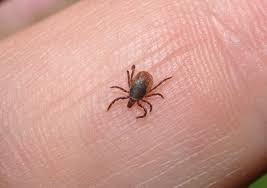 Ectoparasites are parasites that live on the external surface of a host.
Ectoparasites are parasites that live on the external surface of a host.
Ectosites can live on the skin, clothing or in the environment.
They include arthropods such as lice, fleas, ticks, mites, and certain types of flies.
Scabies, bedbug, and body lice infestations are the most common ectoparasitic infestations..
These organisms can cause significant morbidity by feeding on the host’s blood or skin, leading to conditions such as pediculosis (lice infestation), scabies (caused by the mite Sarcoptes scabiei), and tungiasis (caused by the flea Tunga penetrans).
Ectoparasites are of considerable medical importance due to their role in transmitting infectious diseases: body lice can transmit bacterial pathogens responsible for trench fever, relapsing fever, and epidemic typhus.
Ticks are vectors for diseases such as Lyme disease and Rocky Mountain spotted fever.
Management of ectoparasitic infestations often involves the use of topical or systemic insecticides and acaricides.
Resistance to these treatments is an emerging issue.
Ectoparasites are external parasites that can cause direct harm to their hosts and serve as vectors for various infectious diseases, necessitating effective control and management strategies.
